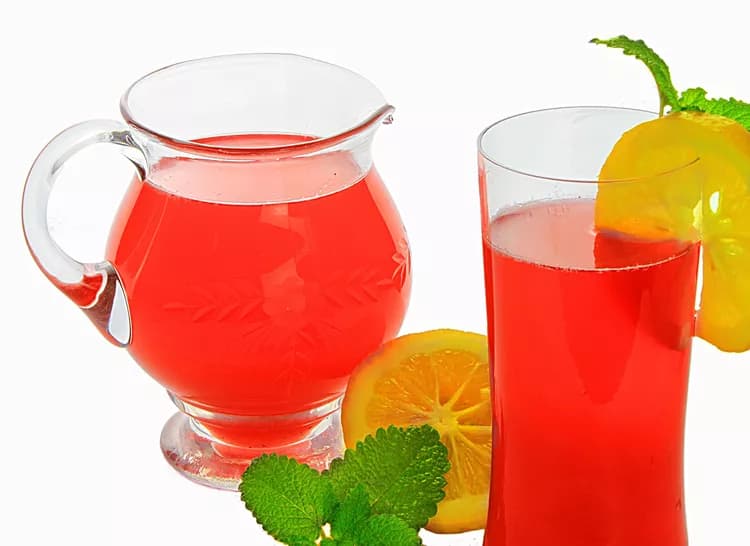
More Information On How Cancer And Sugar-Sweetened Beverages Are Link
A study conducted by researchers at LSU Health New Orleans suggests that age is an important factor in the association between cancer and sugar-sweetened beverages and recommends that intervention programs to reduce consumption of added sugar be focused on lower socio-economic status, young males, as well as cervical cancer survivors. The study is published in the October 2016 issue of Translational Cancer Research.
Sugar intake or sugar-sweetened beverage consumption has been demonstrated to have a positive association with obesity, diabetes and cardio-metabolic diseases, as well as some cancers. As more people are surviving cancer, the consumption of added sugar will be an increasingly important risk factor.
"The objective of this study was to closely evaluate the risk factors of sugar consumption from sugar-sweetened beverages among cancer survivors and people not diagnosed with cancer, and to our knowledge, no other studies have examined sugar-sweetened beverage intake in cancer survivors," notes Melinda Sothern, PhD, Professor of Public Health at LSU Health New Orleans and senior author. "Recently growing evidence suggests a link between sugar-sweetened beverage consumption and the risk of pancreatic and endometrial cancer, as well as the risk of colon cancer recurrence and death among cancer survivors. "
Tung-Sung Tseng, DrPH, Associate Professor of Public Health, along with colleagues at LSU Health New Orleans School of Public Health examined data from 22,182 adults from the National Health and Nutrition Examination Survey (NHANES) 2003-2012 data. The survey measured the consumption of sodas, fruit-flavored drinks, sweetened fruit juices, sports drinks, energy drinks, sweetened teas and coffees and other sugar-sweetened drinks. It also ascertained cancer, smoking and obesity status, as well as demographic characteristics including age, gender, race, educational level and poverty/income ratio.
For the overall study population, 15.7% had high sugar intake from sugar-sweetened drinks. People with no cancer history had a higher sugar intake than cancer survivors, although this could be due to other factors including older age and gender. The sugar intake from sugar-sweetened beverages among women with cervical cancer history was much higher (60g/day) compared to other cancer survivors who consumed only around 30-40 g/day. The research team also found that individuals who had high sugar intake (?80g/day sugar) from sugar-sweetened beverages were younger, male, black, obese, current smokers, low-income, or had education levels at or below high school.
"Although consuming added sugar is not recommended, people are not usually aware of how much sugar they get from sugar-sweetened beverages," says lead author Tung-Sung Tseng, DrPH, Associate Professor of Public Health at LSU Health New Orleans. "The American Heart Association recommends a consumption goal of no more than 450 kilocalories (kcal) of sugar-sweetened beverages or fewer than three 12-ounce cans of soda per week."
The results of the study indicate that sugar-sweetened beverage consumption behavior varies across cancers and may be related to age. The LSU Health New Orleans translational research team, which also included Hui-Yi Lin, PhD, Associate Professor, Lauren Griffiths, Research Associate, and Kristin Cornwell, Public Health graduate student, suggests that intervention programs to reduce sugar-sweetened beverage or added sugar consumption should primarily focus on lower socio-economic status young males, both non-cancer and cancer survivors, as well as cervical cancer survivors. They also recommend that custom intervention to decrease added sugar consumption be conducted for both non-cancer individuals and cancer survivors in communities and the medical care system.
Materials provided by Louisiana State University Health Sciences Center. Note: Content may be edited for style and length.
Disclaimer: DoveMed is not responsible for the adapted accuracy of news releases posted to DoveMed by contributing universities and institutions.
Primary Resource:
Tseng, T. S., Lin, H. Y., Griffiths, L., Cornwell, K., & Sothern, M. (2016). Sugar intake from sugar-sweetened beverage among cancer and non-cancer individuals: the NHANES study. Translational Cancer Research.
Related Articles
Test Your Knowledge
Asked by users
Related Centers
Related Specialties
Related Physicians
Related Procedures
Related Resources
Join DoveHubs
and connect with fellow professionals

0 Comments
Please log in to post a comment.